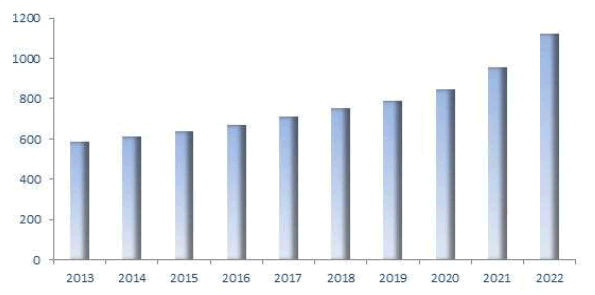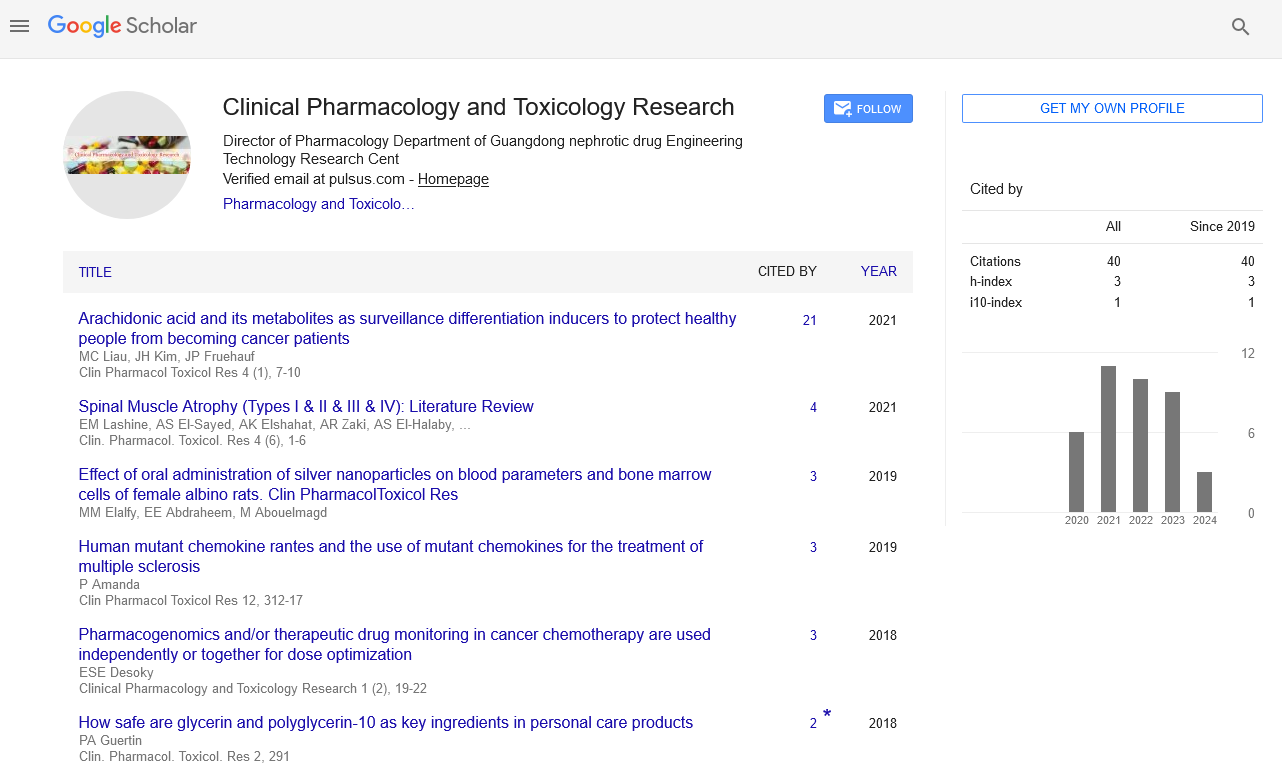Euro toxicology and pharmacology
Published: 25-Jan-2021
This open-access article is distributed under the terms of the Creative Commons Attribution Non-Commercial License (CC BY-NC) (http://creativecommons.org/licenses/by-nc/4.0/), which permits reuse, distribution and reproduction of the article, provided that the original work is properly cited and the reuse is restricted to noncommercial purposes. For commercial reuse, contact reprints@pulsus.com
The toxicology services global market is expected to grow at high single digit CAGR to reach $14,343 million by 2025.The toxicology testing market includes safety assessment of chemicals, drugs, cosmetic products, food additives, etc. without using animals as test models. This testing is performed on advance cel and tissue models to determine safety by studying the potential of the test substances to cause toxicity, such as genotoxicity, skin irritation and sensitization, cytotoxicity, ocular toxicity, organ toxicity, phototoxicity, dermal toxicity, and other toxicities.
In Vivo Toxicology market worldwide is projected to grow by US$2.6 Billion, driven by a compounded growth of 6.6%. Instruments, one of the segments analysed and sized in this study, display the potential to grow at over 6.3%. The shifting dynamics supporting this growth makes it critical for businesses in this space to keep abreast of the changing pulse of the market.
Poised to reach over US$2.5 Billion by the year 2025, Instruments will bring in healthy gains adding significant momentum to global growth. Representing the developed world, the United States will maintain a 5.6% growth momentum. Within Europe, which continues to remain an important element in the world economy, Germany will add over US$90.5 Million to the region's size and clout in the next 5 to 6 years. Over US$78.7 Million worth of projected demand in the region will come from Rest of Europe markets.
United States Chemical industry
The global pharmaceuticals market was worth $934.8 billion in 2017 and wil reach $1170 billion in 2021, growing at 5.8%, according to a recent pharma market research report by The Business Research Company. This is an accelerated pace compared to 5.2% for the years before 2017, but is slower than the other two large healthcare segments, medical equipment and healthcare services. Healthcare as a whole is growing at over 7% year on year.
2018 ranking of leading United States Toxicology and Pharmacology companies based on revenue (in billion U.S. dollars).
Scope and Importance
Toxicology has been defined as the study of the adverse effects of xenobiotics and thus is a borrowing science that has evolved from ancient poisoners. In the biomedical area, toxicologists are concerned with mechanisms of action and exposure to chemical agents as a cause of acute and chronic illness. It is of intellectual interest to the physician to know how drugs are discovered and developed. Often in the past, this was based on folklore or intelligent observation (e.g. digitalis leaf, penicillin). Nowadays, new drugs are mostly developed by the organic chemist working with a pharmacologist, increasingly from basic knowledge about key molecular targets. Usually some sort of biological screen is used to select among organic molecules for optimum pharmacological activity.
Supply of Food
The study of Foodborne illness, more commonly referred to as food poisoning, is the result of eating contaminated, spoiled, or toxic food. The most common symptoms of food poisoning include nausea, vomiting, and diarrhea. Although it's quite uncomfortable, food poisoning isn't unusual.
Contribution to Improved Health and Sanitation Facilities
Control of neglected tropical diseases (NTDs) requires multiple strategic approaches including water, sanitation and hygiene services (WASH). Buruli ulcer (BU), one of the 17 NTDs, remains a public health issue in Benin particularly in the district of Lalo. The availability of water as well as good hygiene are important for the management of Buruli ulcer particularly in the area of wound care one of the main component of the treatment of BU lesions. Given the growing importance of WASH in controlling NTDs and in order to assess the baseline for future cross-cutting interventions, we report here on the first study evaluating the level of WASH and associated factors in Lalo, one of the most BUendemic districts in Benin.
The Scope of Chemistry in Saving the Environment
Thanks to science, now we have environment-friendly chemicals that help us conserve the nature. One such example is the replacement of CFCs in the refrigerators.
The Scope of Chemistry in Industry
Over the years pharmacy has grown in the form of pharmaceuticals sciences through research and development processes. It is related to product as well as to services. The various drugs discovered and developed are its products and the healthcare it provides comes under the category of services. Pharmacy involves al the stages that are associated with the drugs i.e. discovery, development, action, safety, formulation, use, quality control, packaging, storage, marketing, etc.

Contact Name: Indie Joe
Contact: joe_indie@uch.edu





